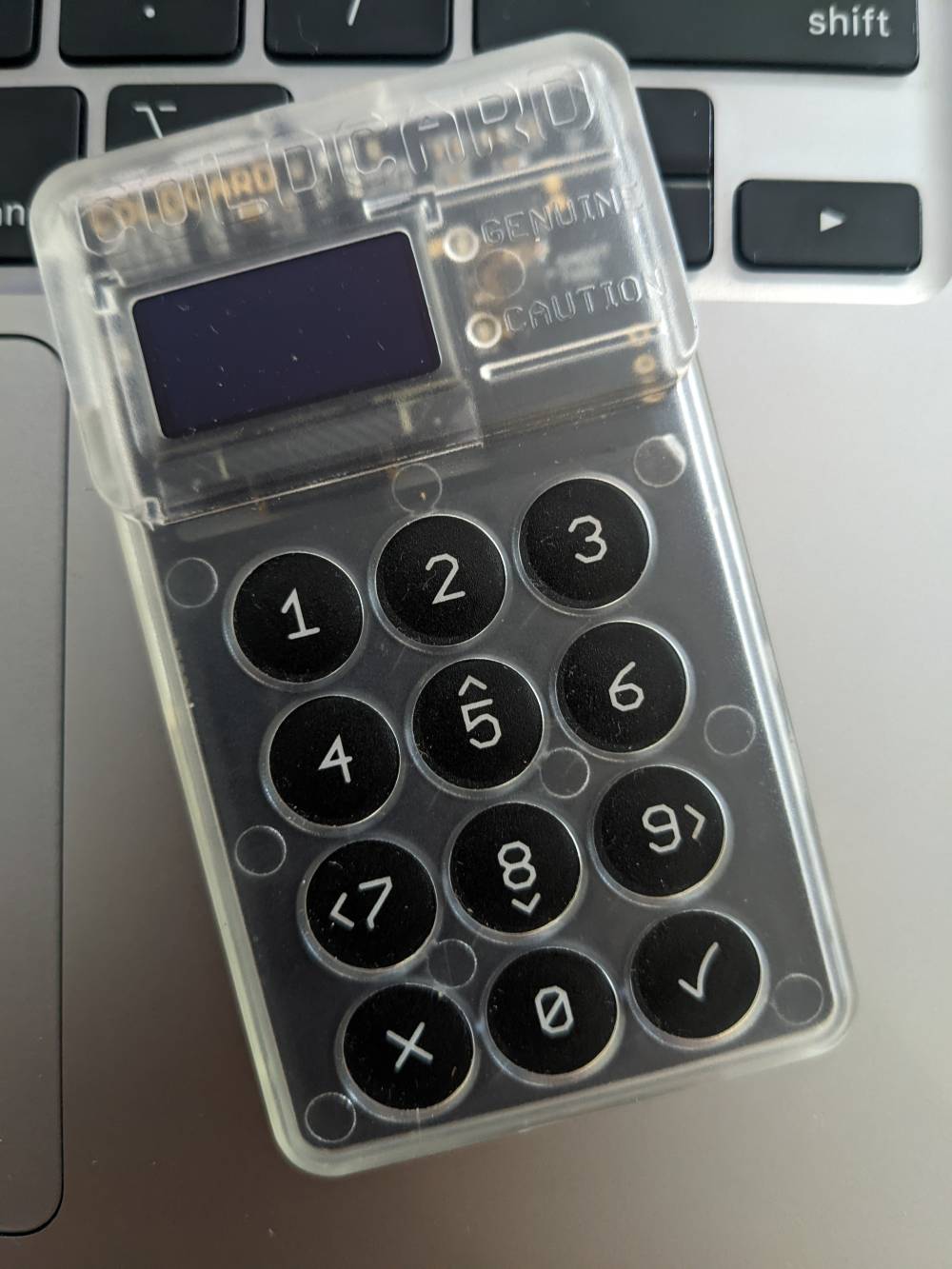What is a hardware wallet?
Hardware wallets were made to more easily keep your private key away from the Internet. It is a specialized computer that should not go online that contains your private key.

Coldcard is a Bitcoin hardware wallet.
An alternative to using a factory-made hardware wallet would be to have a phone or computer that has Bitcoin software to sign transactions, but before the private key is generated, it is taken offline.
With a hardware wallet, you can sign transactions by plugging the wallet to your computer, and the software on the computer will ask the hardware wallet to sign the transaction.
On the hardware wallet, you will be shown some information about the transaction, such as the address you’re sending to and the amount.
BTC Sessions has a lot of good content about Bitcoin wallets. See him talk about another wallet, Trezor, here:
So… it’s a signing device?
If you’re thinking “hardware wallet” isn’t a good name, you’re onto something. It doesn’t store any money or keep track of balances like a wallet does. It merely contains a private key and can sign transactions given to it.
If you call it “signing device”, you’ll get some positive looks from people who’ve been in the space for a while.
List of signing devices
Here are the signing devices some of us at BloomX are familiar with and have fairly high degree of confidence:
| Signing Device | Coin support |
|---|---|
| Coldcard | Bitcoin only |
| Trezor | 1000+ coins; Bitcoin-only firmware |
| Ledger | 1000+ coins |
There are others which we have tried but are discontinued, not updated, or have known vulnerabilities:
| Signing Device | Coin support | Notes |
|---|---|---|
| KeepKey | 40+ | Relative easy private key extraction |
| Cobo Vault | Discontinued |
And there are others which we have not tried ourselves but are worth mentioning:
| Signing Device | Coin support | Notes |
|---|---|---|
| Keystone Essential | 1000+; Bitcoin-only firmware | Spiritual successor to Cobo Vault; very easy signing |
| BitBox | Dozens; Bitcoin-only edition | |
| Foundation Passport | Bitcoin only | |
| SeedSigner | Bitcoin only | Open source, DIY |
Why do I see some Bitcoin only devices?
Some hardware makers decided to focus on one cryptoasset only, and their reasoning is that it is
- easier to keep the devices secure since there are less features
- devote more time to develop more advanced Bitcoin features such as seed xor or, although we haven’t covered it yet, better multisig support1.